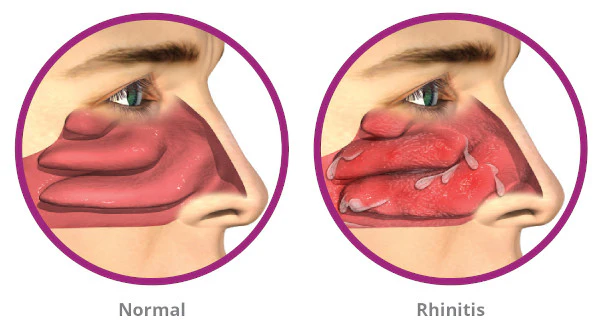Do you frequently experience sneezing fits, an itchy and runny nose, or wake up sneezing in the morning? Does your sneezing and runny nose seem to be triggered by specific weather conditions or changes in weather? Do you also experience wheezing or itchy eyes alongside these symptoms? If so, you might be dealing with nasal allergies.
Nasal allergies, also known as allergic rhinitis, hay fever, or pollinosis, occur when your body’s immune system overreacts to certain substances called allergens that you inhale. Common allergens include pollen, mold, pet dander, and dust. Essentially, allergies happen when your immune system mistakenly identifies harmless substances as threats, causing an exaggerated response.
Pollen is often a major trigger for these reactions.
Homeopathy approaches allergy treatment with the principle of “like cures like.” This means that a substance causing a particular symptom can also help treat those symptoms when prepared in a diluted and potentized form. Therefore, homeopathy uses remedies derived from plants whose pollens are known to cause allergic reactions.
Two notable advancements in homeopathic treatments are Galphimia Glauca and Histaminum Hydrochloride.
A study in the US showed that Galphimia Glauca is highly effective for treating allergic rhinitis. Other recent plant-based remedies like Cardiospermum Halicacabum and Amni Visnaga have also shown promise. Traditional homeopathic remedies such as Allium Cepa, Sabadilla, Arundo Mur, Ambrosia, and Aralea remain effective as well. Homeopathy treats based on individual symptoms, so the choice of remedy depends on the specific symptoms each person experiences. Complete relief from allergic rhinitis might take one or two seasons.
With increasing industrialization, our bodies are adapting to environmental changes. A report by the BMJ (British Medical Journal) indicates that one in six people in industrialized countries suffers from seasonal pollen allergies. While pollution does not directly cause allergies, it can heighten sensitivity to allergens. For instance, high levels of diesel exhaust particles in the environment have been linked to increased pollen sensitivity. Genetic factors may also contribute to the development of nasal allergies.


